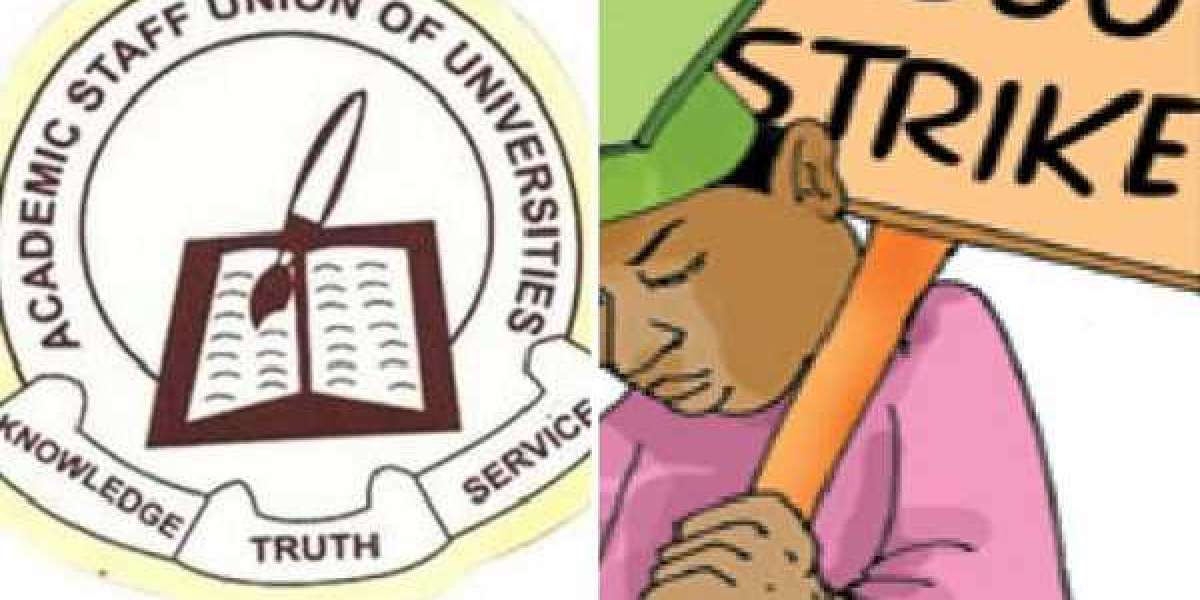The Committee for the Defense of Human Rights (CDHR) has provided an explanation of how the recent strike action that was undertaken by university lecturers influenced the high rate of migration of skilled Nigerians and academics to countries outside of Nigeria.
Workers at universities, organized under the auspices of the Academic Staff Union of Universities (ASUU), have just just ended their strike that had lasted for eight months. The academics made a number of demands, one of which being an increase in the cash available to universities. Nevertheless, during the organization's annual general meeting that took place in Lagos, the CDHR National President, Dr. Osagie Obayuwana, stated that the rate of migration has certainly increased in recent years.
He stated that this time, the people who are leaving are not just young people who are destitute and willing to work any job; rather, it is professionals such as medical physicians, pharmacists, nurses, physiotherapists, lawyers, engineers, and so on who are going.
He made the following statement: "These are highly skilled assets of Nigeria that were trained at significant expenses from the public and private purse. They are being poached to augment and satisfy the high-level personnel deficiencies of countries that are otherwise labelled as developed."
This massive loss of manpower within the period under review has been made worse by the poor management and handling of the industrial action that was embarked upon by the Academic Staff Union of Universities (ASUU), which lasted for eight clear months out of the year. This action was carried out for the duration of the period under review.
"Yes, lecturers were forced back to their classrooms in an orgy of involuntary servitude that only reminds one of the time when the enslaved were compelled to produce under the lashes of the slave master's whip. This was accomplished by a manipulative strategy that placed the striking lecturers in confrontation with the might of the Judiciary.
"At the same time, the issues raised by the striking lecturers bordering on the rescue of Nigeria's tertiary educational system remain unanswered. Those issues include:
"It is said that the universities have been reopened, but under circumstances where depression and lack of motivation reign supreme on the part of the academic and non-academic staff and students, even going as far as the university management cadre, where over-centralization has made nonsense of the clamour for autonomy and academic freedom. "The universities have reportedly been reopened under circumstances where depression and lack of motivation reign supreme on the part of the academic and non-academic staff and students.
Also Read : Full Salaries to ASUU Faculty Like You Pay President Buhari in London, Shehu Sani speaks
"Perhaps, it is only now that the universities have been reopened that a census can be taken of how many professors and senior lecturers the university system and the nation has lost over the course of these last eight months. Even the manner in which the strike was broken off would, without a doubt, add to Nigeria's ongoing brain drain.
The organization compared the refusal of the government to concede university autonomy to "the similar call for decentralisation of the police force and the abrogation of the lopsided distribution of legislative powers between the so-called Federal Government and the state governments at the expense of greater efficiency and meeting of obligations to the populace."
Obayuwana also blamed the security difficulties facing the nation as one of the reasons for the high migration of Nigerian nationals in pursuit of greener pastures. He said this was one of the reasons behind the high rate of migration.
He proceeded by saying, "In addition to the aforementioned, we are aware that the scourge of insecurity of lives and property in all regions of Nigeria has been at its lowest ebb, maybe at no other period in the history of the country has it been this bad; not even during the time of the civil war."
We are curious as to whether or not the National Bureau of Statistics would be able to measure the detrimental effects that this level of insecurity has had on Nigeria's economic prospects.
"Never before have unemployment rates been at this high of a level, and inflation rates are at their all-time worst in the history of our nation. There are millions of people in Nigeria who can no longer afford the nourishing food or medicine that they need to stay alive.
"The value of labour and everything else in Nigeria is being lowered because the exchange rate between the Nigerian naira and major currencies of the globe has never been this high. All of these interconnected problems are reinforcing each other in a way that renders life meaningless for the typical Nigerian citizen, who cannot by any stretch of the imagination enjoy the social and economic rights that are so dearly earned.
"Outside of the invasion of Kuje Prison and the release of hundreds of terrorists, we hear that the Buhari Presidency yielded to the bargaining of releasing of terrorists in custody in various parts of the country, in order to achieve the release of the victims of the Kaduna/Abuja train hijacking." "Outside of the invasion of Kuje Prison and the release of hundreds of terrorists." — "Outside of the invasion of Kuje Prison and the release of hundreds of terrorists." We have waited in vain for the Presidency to contradict this up until this point.
"It is quite evident that Nigeria is not going to be in a position to observe the trial of any terrorist during the time that the Buhari government is in power.
"In the meantime, in certain regions of Niger State, helpless farmers are being forced to pay bandits taxes in order to be granted permission to harvest their crops. What a horrible and disgraceful act.
"The cabal that profits under the subsidy scam continues to milk the pockets of the Nigerian People dry by their deliberate conspiracy against the functioning of the nation's refineries," and "they have been assured of trillions of naira in the coming months." [Translation:] "The cabal that profits under the subsidy scam continues to milk the pockets of the Nigerian People."
The Center for the Defense of Human Rights in Nigeria (CDHR) also deplored the daily theft of Nigeria's crude oil "via enormous pipelines that run several kilometres beyond Nigeria's shoreline into the high seas, equivalent to the catch me if you can game of 'handkerchief taking.'"




